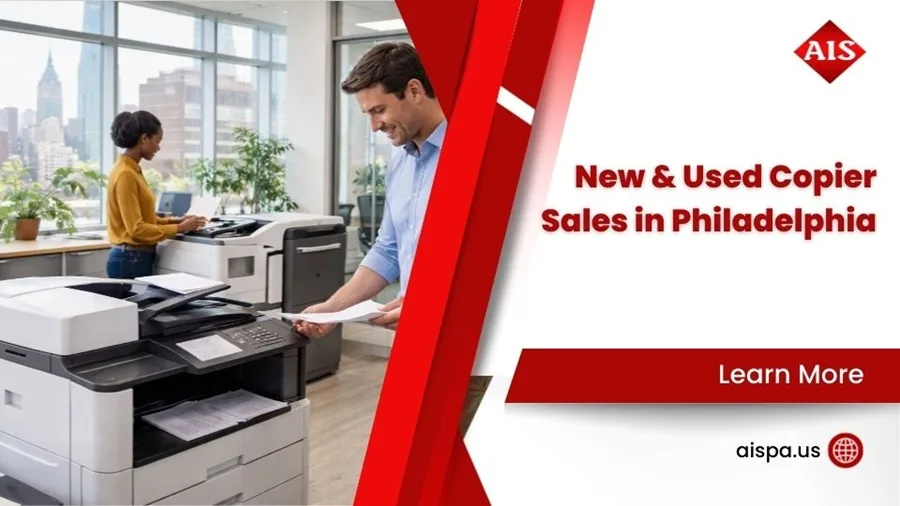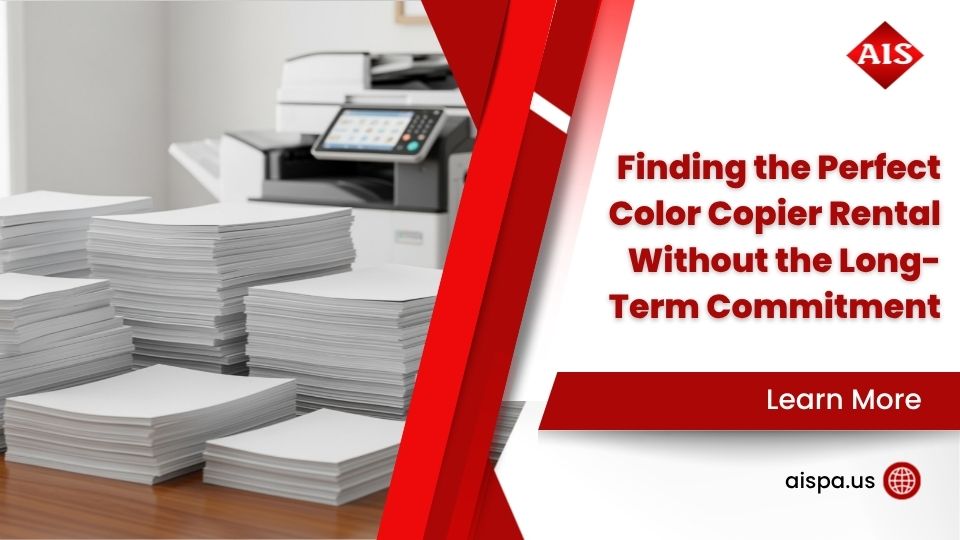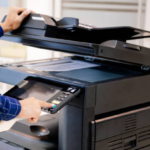Source Code: Navigating Copier Options with Experts
Choosing the Best Copier Source for Your Office Needs
A reliable copier source is essential to keep your office running without headaches or downtime. Whether you’re looking for affordable leasing options, eco-friendly solutions, or equipment that easily integrates with your existing setup, picking the right provider matters.
Here’s how to quickly identify a good copier source:
- Local Experience: Choose suppliers who’ve served your area (like Philadelphia) for several years.
- Product Variety: Look for a provider offering multiple brands and copier types to match your specific business needs.
- Service & Support: Opt for a supplier with strong customer support, maintenance services, and flexible leasing plans.
- Eco-Friendly Practices: Prioritize companies offering equipment with energy-saving features and recycling programs.
In this guide, we’ll tap into expert insights to make navigating copier options easy, highlighting how the right partner helps your business grow efficiently and sustainably.

Finding the Right Copier Source for Your Business
Searching for the ideal copier source can quickly become overwhelming. With so many providers promising top-notch equipment and stellar service, how can you spot the truly reliable ones from the crowd?
Industry expert James Wilson puts it this way: “Finding a commercial-grade office copier or multifunction printer on a short-term basis can be tricky. Most leasing companies focus heavily on long-term contracts, which aren’t always practical for special events or shorter projects.”
To make sure you’re getting the right partner, start by looking for providers with local presence and expertise. Suppliers who have been operating in your community for years understand the unique needs of businesses in your area. They can offer personalized recommendations that national or online-only companies might not fully grasp.
Next, evaluate the range of equipment options the provider offers. A great copier source is one that carries a variety of brands and models. Why is this important? Because it means you’re more likely to find a copier that fits your exact needs—rather than settling for whatever they happen to stock.
Beyond equipment, consider their comprehensive service packages. A reputable copier provider will take care of installation, regular maintenance, and technical support. Ideally, they’ll be available when you need help urgently—whether that’s in-person service or remote troubleshooting. Quick response times aren’t just nice-to-have, they’re essential when your copier decides to misbehave five minutes before a client meeting!
Finally, look for a provider with flexible contract terms. Whether your business needs a short-term rental for a weekend event or a long-term lease to keep your office running smoothly, your copier provider should be able to accommodate your business timeline and budget.

Here at Associated Imaging Solutions, we’ve proudly served businesses throughout Pennsylvania, from Philadelphia to Pittsburgh and Harrisburg. Our team doesn’t just sell and lease copiers—we work closely with you to understand your unique document management needs. With local expertise and a wide range of advanced copier options, we aim to be your go-to copier partner, no matter your business size or industry.
The Importance of a Reliable Copier Source
Choosing a reliable copier source isn’t just about getting quality equipment—it’s about partnering with someone who becomes an integral part of your team. Think of them as your “copier superheroes,” swooping in quickly whenever there’s trouble.
A recent industry study found that businesses partnering with dependable copier providers experienced 37% fewer workflow disruptions related to document management. That’s a lot of saved headaches (and paper jams)!
Family-owned companies often excel in providing personalized, hands-on service. One great example is Copier Source in Lake Havasu City, AZ. Since 1989, they’ve built their reputation around customer-first service, even offering free delivery without minimum orders—proof that small details matter.
Expert technician Maria Rodriguez sums it up nicely: “When you find a trusted copier partner, you’re not just leasing equipment—you’re gaining peace of mind. Regular preventative maintenance, fast repairs, and expert advice help your business run smoothly and grow.”
The advantages of teaming up with a reliable copier supplier include reduced equipment downtime, expert guidance throughout your copier’s lifespan, continuous support through regular maintenance visits, and recommendations for scalable solutions as your business expands.
How to Identify the Best Copier Source
It’s clear that having a top-notch copier provider matters—but how exactly do you go about finding one? Start by doing a little homework. Look into their reputation by checking online reviews, customer testimonials, and real-life case studies. Providers who’ve consistently earned great customer feedback are usually the safest bets.
Next, assess their industry experience. How long have they been around? Do they have extensive knowledge about different copier brands and models? Take Copier Source Enterprises, which started small in 2011 and now employs over twenty trained experts—a sign of their growth and success.
You’ll also want to evaluate their service capabilities. Can they provide timely on-site service or remote troubleshooting? Ask about average response times and availability. After all, no one wants to wait days for a technician to arrive when documents need printing urgently.
It’s equally important to examine their product lineup. Look for a provider offering a diverse range of copier options—this way you’ll find equipment that matches your business needs and budget perfectly.
Lastly, pay attention to their sustainability practices. Businesses today value eco-friendly solutions more than ever. Seek providers who offer energy-efficient models and recycling programs for toner cartridges and other consumables.
Before you make your final decision, ask potential suppliers some key questions:
- How many years have you been serving this area?
- What copier brands do you offer, and why do you recommend them?
- What’s your average response time for service calls?
- Do you provide both purchasing and leasing options?
- How do you train our employees on new equipment?
- What maintenance plans do you offer?
- How quickly can you handle emergency copier issues?
- What sets your company apart from competitors?
Procurement specialist Thomas Chen advises, “When asking questions, notice whether the copier provider takes the time to understand your specific needs before recommending machines. A great copier source won’t just push their priciest models—they’ll genuinely try to find the best fit for your business.”
Still feeling a bit unsure? Check out our detailed guide, “Copier Companies Near Me”, for even more insights on choosing the perfect copier provider.
Expert Tips for Choosing the Right Copier
Choosing the right copier for your office isn’t just about picking the latest model off the shelf. It’s about understanding your business, your workflow, and where you see your organization going over the next several years. As efficiency consultant Rebecca Johnson points out, “The price tag on a copier may seem straightforward at first, but it’s the hidden costs and long-term impact that really affect your business’s bottom line.”
Let’s explore how to make a smart choice that saves money and streamlines your office operations—without the headache.

Assessing Your Business Needs
Before reaching out to your local copier source, take time to pinpoint exactly what your business requires. Start by figuring out your monthly print volume. Small businesses often print between 3,000 and 5,000 pages per month, while larger offices may easily handle 10,000 or more.
Next, think about functionality. Do you just need basic copying capabilities, or is your team scanning documents, sending faxes, and managing digital files as well? Multifunction copiers can simplify your workflow significantly.
Don’t forget to consider your office space. The best copiers aren’t just powerful—they’re also space-efficient. Look for a copier with a compact design if your office real estate is limited.
Think about how many users will access the machine daily. If your staff regularly works remotely or moves around your workspace, look for a copier that offers mobile printing and remote access functions.
Finally, consider your growth plans. Your ideal copier isn’t just about today’s needs, but should support your business as it scales over the next three to five years. Choosing equipment that easily integrates upgrades can save you future headaches.
Evaluating Total Cost of Ownership
Price tags can be deceiving. To truly understand a copier’s cost, look beyond initial purchase or lease prices. Consider cost per page, since that ongoing cost directly affects your budget. Most cost-effective copiers have a low cost-per-page rate of around one to two cents per print.
Energy efficiency also matters. Choosing an energy-saving model can substantially lower your monthly electric bill—good for your wallet and the planet. Consumables, such as toner, paper, and replacement parts, add up over time too, so factor these into your budget.
Don’t underestimate the value of a strong maintenance contract. Find out exactly what’s covered, what it costs, and how quickly your supplier responds when something goes wrong.
Finally, ask about future upgrade options. Technology advances quickly, and you’ll want a copier whose manufacturer supports affordable upgrades and improvements down the road.
Laser printers often outperform inkjets financially over the long haul due to lower maintenance costs and fewer cartridge replacements. Tech analyst James Peterson sums it up nicely: “Choosing a laser copier can save you serious money and headaches in the long run.”
Key Features to Consider
Not all copiers are created equal. Certain features can improve productivity, reduce expenses, and simplify your daily tasks.
If your business regularly creates client-facing documents or marketing materials, choose a copier with high-resolution output. It ensures your materials always have a professional and polished look.
For busy offices frequently copying and scanning large stacks of documents, an automatic document feeder (ADF) is a must. It saves time and frustration, keeping your workflow moving smoothly.
To cut paper costs and operate sustainably, choose a copier with duplex printing—it prints on both sides of the paper automatically. Your budget and the environment will thank you!
Modern workplaces often need advanced features like cloud connectivity and mobile printing. These options allow your team to scan straight to cloud services like Google Drive or print directly from their smartphones—perfect for remote teams and offices with bring-your-own-device policies.
Security also matters. Copiers with built-in security features keep your sensitive data safe, essential if you’re handling confidential client information or financial documents.
Finally, look for copiers with dedicated energy-saving modes. These not only help you save money on your energy bill but also demonstrate your commitment to eco-friendly practices.
Here’s a quick reference table summarizing key copier features to help you easily compare:
| Feature | Benefit | Best For |
|---|---|---|
| High-Resolution Output | Professional-quality documents and marketing materials | Businesses creating client-facing materials |
| Automatic Document Feeder | Efficiently handles multi-page copying and scanning | Busy offices with high-volume document needs |
| Duplex Printing | Cuts paper usage, saves money | Eco-conscious businesses looking to control costs |
| Cloud Connectivity | Easy document sharing and storing | Offices with remote staff and digital workflows |
| Mobile Printing | Print from smartphones or tablets | Flexible, modern workplaces |
| Security Features | Protects sensitive information | Businesses managing confidential data |
| Energy-Saving Modes | Lowers energy bills, eco-friendly | Cost-conscious and environmentally aware offices |
Workflow consultant Maria Sanchez puts it well: “Today’s copiers aren’t just machines—they’re integral parts of your office’s digital ecosystem. Features like cloud scanning and mobile printing turn your copier into a productivity powerhouse.”
By carefully assessing your business needs, evaluating the total cost of ownership, and choosing the right mix of key features, you’ll confidently select a copier that truly supports your business. Still need help? Our guide on how to Choose an Office Copy Machine offers more great insights to get you started.
Choosing the right copier for your business isn’t just about the features or brand—it’s also about picking the payment arrangement that fits your needs. At Associated Imaging Solutions, we offer both rental and leasing options designed for businesses across Pennsylvania. Let’s explore these choices to help you find your ideal solution.
Rental vs. Leasing: Understanding the Difference
Even though the terms seem similar, copier rentals and leases serve different purposes and come with unique benefits.
With copier rentals, think of it as a short-term relationship. Rentals typically last anywhere from a few days to a few months. They’re perfect when your business has temporary or seasonal needs, or if you’re handling special events or short-term projects. Rentals usually have a higher monthly cost than leases—but here’s the upside: there’s no long-term commitment! Plus, the rental fee often covers everything, including maintenance and supplies. Need to switch models or upgrade to better features? Rentals make it quick and hassle-free.
Financial advisor Robert Thompson explains, “Short-term copier rentals are specialized services distinct from traditional multi-year leasing options. They’re perfect for events, conferences, or temporary offices that need high-quality equipment without long-term commitments.”
On the other hand, copier leases are like settling into a comfortable, long-term partnership. Lease agreements typically run for 3 to 5 years, offering lower monthly payments compared to rentals. A lease can be more budget-friendly for businesses with steady and predictable copier usage. Many lease agreements also include maintenance plans, making it easier to manage ongoing service needs and avoid surprise expenses. Plus, leases often come with upgrade options, so you’re not stuck with outdated technology as your business grows. Bonus tip: leases may also provide certain tax advantages, so ask your accountant about potential savings!
Short-term vs. Long-term Considerations
Deciding between short-term and long-term copier arrangements depends on your business situation and goals. Short-term copier agreements—such as monthly or quarterly rentals—are ideal for startups, small businesses, or operations experiencing fluctuating document management needs. If flexibility matters to you, short-term solutions give you freedom to adjust or upgrade your equipment whenever your needs change.
As business strategist Emily Chen notes, “Short-term deals are perfect for businesses with uncertain growth trajectories. If you’re not exactly sure where your business will be in a year, a rental gives you breathing room and flexibility.”
Meanwhile, long-term leases offer stability and cost predictability. Businesses with consistent document workflows and steady printing demands benefit most from a long-term lease. You can budget easily, knowing exactly how much you’ll pay each month. Plus, these leases often include comprehensive service agreements, minimizing downtime and peace-of-mind headaches. And remember—some leases even let you buy the copier at the end of the term, if ownership aligns with your business objectives.
“Long-term leases work best for larger organizations or businesses with consistent copier needs,” adds Chen. “They spread costs over time and typically offer better service coverage.”
Cost Considerations for Different Options
When exploring copier arrangements with any copier source, keep some key financial considerations in mind.
Initial costs matter—a rental might have no or minimal upfront payments, making it easier on your cash flow. A lease might require a moderate down payment, but typically lowers your monthly expense.
Next, think about monthly expenses beyond the basic rental or lease fee. Ask your copier source about any additional charges, like per-page costs or monthly maintenance fees. Being clear on these details helps avoid surprises down the road.
You’ll also want to clarify exactly what’s included in your agreement. Rentals usually package maintenance and supplies together, whereas lease agreements can vary. Confirm what service coverage you get and ask how toner, paper, or repairs are handled.
Finally, consider your end-of-term options and early termination penalties when signing a lease. Does the copier go back to the provider at the end, or can you choose to buy it? What if your needs change, and you want to end your lease early—will there be penalties? Clear answers to these questions ensure your arrangement aligns fully with your business plans.
Procurement specialist David Martinez recommends, “If you need a quick upgrade, leasing is often the best choice. Leases can provide immediate equipment improvements, giving you time to carefully evaluate your long-term copier strategy.”
For more details on copier leasing, especially if you’re in Philadelphia, check out our guide on Copier Leases in Philadelphia. And if lease agreements seem confusing, our post on Understanding Your Copier Lease Agreement: What You Need to Know offers helpful insights to simplify the process.
The Benefits of Managed Print Services
Managed Print Services (MPS) isn’t just a fancy phrase—it’s a smarter way to handle your office printing. At Associated Imaging Solutions, we’ve seen how businesses across Philadelphia and throughout Pennsylvania benefit from an MPS approach.
It’s more than just leasing machines. Think of it as having a dedicated team that streamlines your entire print environment, saving you time, money, and headaches.

Efficiency Improvements Through MPS
When you work with a good copier source for managed print services, the first thing you’ll notice is how smoothly things run.
Your equipment isn’t placed randomly anymore. Instead, each copier is strategically placed right where it’s needed most, based on how each department actually uses it. Productivity jumps because staff members spend less time walking around the office and more time getting things done.
MPS also means you’re no longer scrambling to order toner or paper at the last minute. Automated supply management ensures you have replacements before you run out. (Because let’s face it, running out of toner always happens at the worst possible moment.)
Another big plus? Your IT team can finally focus on important projects instead of dealing with copier issues. Your MPS provider handles repairs, troubleshooting, and updates. Plus, having standardized equipment across your office makes training easier and reduces confusion among your team.
Additionally, workflow optimization features like scanning directly to email, cloud storage, or mobile printing keep your business moving quickly and smoothly. Technology specialist Jennifer Wong points out, “When all these features are connected properly through managed services, they can transform your workplace productivity.”
Cost Savings with Managed Print Services
One major reason businesses switch to MPS is simply because it saves money. A surprising study revealed that about 30% of printed pages end up in the recycling bin the very same day. Managed Print Services help eliminate this waste by encouraging smarter printing habits.
With automated supply ordering, you won’t have piles of unused cartridges or emergency supply runs that cost extra. Your equipment is carefully matched to your actual needs, which means no more overspending on big, pricey machines loaded with features you never use.
Energy-efficient equipment plays a role, too. By choosing devices designed to consume less electricity, you’ll see the positive impact on your monthly bills.
Perhaps best of all, you’ll enjoy predictable monthly costs. No more guessing or surprise expenses—just a consistent payment you can rely on.
Security Features in Modern Print Management
Here’s something many don’t realize: office copiers can be a security risk if not managed properly. Cybersecurity specialist Sarah Johnson warns, “Outdated or unmanaged copiers can become easy entry points for hackers.”
That’s why today’s managed print services include robust security features. Secure release printing ensures documents don’t sit unattended in the output tray, waiting for unauthorized eyes. Users must authenticate themselves to retrieve prints, keeping sensitive information safe.
Advanced MPS solutions encrypt your data both while it’s stored and while it’s transferred, protecting against theft or unauthorized access. Hard drive security also automatically deletes temporary information that copiers store, reducing your risk of data leaks.
If your business needs to comply with regulations like HIPAA or GDPR, managed print services can also help you stay compliant. Your MPS team keeps an eye on security, addressing potential vulnerabilities before they become serious problems.
Environmental Impact and Sustainability
Choosing managed print services doesn’t just benefit your business—it also helps the planet. Your copier source can help your office shrink its environmental footprint with smarter printing solutions.
One of the simplest ways this happens is through reduced paper usage. Duplex (two-sided) printing and digital workflows greatly reduce waste. Energy-conserving equipment meets ENERGY STAR standards, saving electricity and lowering your carbon footprint.
Many MPS providers, including Associated Imaging Solutions, also offer recycling programs for used toner cartridges and retired equipment. We help ensure that supplies and old machines stay out of landfills, making your operations eco-friendly.
Moreover, MPS optimizes the number of devices you actually need, reducing overall consumption. Sustainability coordinator Thomas Green notes, “Our commitment to eco-friendly solutions helps businesses maintain productivity while significantly cutting their environmental impact.”
Managed Print Services from a trusted copier provider like Associated Imaging Solutions give you more than just copiers—they offer peace of mind, sustainability, security, and real savings for your business.
Want more details on whether renting or leasing is best for you? Check out our Why Rent a Copier? article for helpful insights.
Frequently Asked Questions about Copiers
What Are the Key Features to Look for in a Copier?
Choosing the best copier for your office is more than just comparing price tags. When evaluating copiers from any copier source, it pays to look closely at a few key features.
High-resolution printing is especially important for businesses producing brochures, presentations, or marketing materials. A resolution of at least 600 x 600 dpi (dots per inch) ensures professional-looking documents. For creative industries, such as graphic design or photography studios, higher resolutions—around 1200 x 1200 dpi or even greater—may be necessary to achieve exceptional quality and detail.
According to creative director Maria Lopez, “If your work involves detailed images, investing in a high-quality copier can make a huge difference. Some specialized printers go up to 4800 x 2400 dpi, which is fantastic for photos and art prints.”
Speed matters too—especially if your office is busy. Consider how quickly the copier prints the first-page-out and its ongoing pages per minute (PPM). Most business-grade copiers produce between 30-60 PPM, making them perfect for typical office workloads. However, large organizations or production environments might require machines capable of 100 PPM or more.
Multifunction capabilities streamline your workflow by combining printing, copying, scanning—and sometimes even faxing—in a single machine. Modern multifunction copiers often offer handy features like scanning documents directly to email or cloud services (such as Google Drive), optical character recognition (OCR) for editable text files, and even mobile printing support.
It’s also smart to think about how your copier will handle paper. A copier with a generous paper capacity, multiple trays for different paper types, and auto-duplexing capability (automatic double-sided printing) will save you time—and possibly lower your paper costs too.
Connectivity is another must-have. Modern copiers typically offer Ethernet networking, wireless connectivity, and USB ports. Some models even feature mobile-friendly options like NFC (near-field communication) or cloud printing, making it easier for your team to print from anywhere.
Lastly, don’t underestimate the importance of a user-friendly interface. A thoughtfully designed touchscreen makes operation quick and intuitive, reducing training time significantly. Advanced copiers may even offer customizable menus, letting you create shortcuts for frequently used functions.
How Do I Determine the Right Copier for My Business?
Finding the perfect copier isn’t guesswork—it’s about assessing your business needs and working closely with your trusted copier source.
The first step is evaluating your monthly printing volume. Track your current copier usage and estimate your future needs. Copiers have recommended monthly duty cycles, and regularly exceeding those volumes can shorten the machine’s lifespan and increase maintenance costs.
As efficiency consultant Robert Chen advises: “Your copier is like the unsung hero of your office—often unnoticed until something goes wrong. Choosing a copier that matches your volume needs helps ensure reliability and cost-effectiveness.”
Next, consider your future growth. Look for copier models offering scalable options like additional paper trays, upgradeable features, or advanced finishing options. Selecting equipment that can grow alongside your business helps save money and prevents frequent equipment changes.
It also helps to analyze your workflow. Identify where your document processes could improve—perhaps by digitally converting paper files, automating repetitive tasks, or enabling remote workers to access printing services.
Don’t hesitate to consult copier experts. A reputable copier source will happily perform a detailed needs assessment, suggest optimal models, and even demonstrate how the equipment works for your specific business. They should provide clear, detailed information about total cost, including maintenance and consumables.
Finally, it’s wise to test a copier before making any long-term commitments. Request a trial period or visit a showroom to experience how the machine handles your actual documents and meets your workflow requirements.
Should I Buy or Lease a Copier?
Deciding whether to buy or lease your copier depends entirely on your business needs, financial situation, and goals. Let’s look at both options.
Buying a copier means no ongoing monthly payments after the initial cost. It gives you ownership of an asset for tax purposes and frees you from contractual obligations and early termination fees. You can typically use the equipment longer than a typical lease term, maximizing your investment.
However, ownership also means you’re fully responsible for maintenance and repairs once the warranty expires. If your copier becomes outdated, upgrading involves selling or disposing of the old equipment.
On the other hand, leasing a copier lowers your initial cash outlay and offers predictable monthly payments—great for budgeting. Leasing agreements often include maintenance, supplies, and service, making it easier to manage your equipment without unexpected costs.
Leasing also makes staying current with technology much easier. At the end of the lease, you typically have options to upgrade to newer equipment, purchase the equipment outright, or simply return it. Many businesses choose leasing for exactly this flexibility.
Financial planner Jennifer Martinez advises, “Choosing how to acquire your copier is just as important as picking out the model itself. Think carefully about your budget, your need for flexibility, and your future goals before deciding.”
If your document needs are stable and you have available capital, buying might make sense. But if your business is growing, employees are frustrated with your outdated copier, or staying on the cutting edge matters to you, leasing often makes more sense.

Conclusion
Choosing the right copier source isn’t just about getting a piece of equipment in your office—it’s about finding a partner who truly understands your business and helps you keep things running smoothly. From figuring out your daily copying needs to deciding if buying or leasing makes more sense, there’s plenty to think about. But don’t worry—you’re not alone!
Throughout this guide, we’ve walked together through the essentials of selecting a copier. We talked about assessing your business needs, comparing features, and calculating the true cost of equipment. We also explored the advantages of both short-term rentals and long-term leases, breaking down what each means for your wallet and workflow.
One important takeaway is that not every copier source is created equal. The right provider doesn’t only sell or lease machines—they offer expert advice, reliable service, and genuine care. They check in regularly to ensure your equipment runs perfectly, help you stay secure, and show you how newer technology can boost your productivity (and maybe even your mood!).
At Associated Imaging Solutions, we take pride in being more than just your typical copier supplier. We’re part of the community, serving businesses throughout Pennsylvania, including Philadelphia, Pittsburgh, Harrisburg, and many other areas. With decades of local experience and globally recognized standards, our team knows exactly how to match you with technology that fits your office like a glove.

When you partner with us, you’re getting more than just a copier. You’re getting personalized service, friendly faces, and the peace of mind that comes from knowing we’ve got your back. Our experts don’t disappear after your copier arrives; we stick around, ensuring everything’s running smoothly, helping you optimize workflows, and being there quickly if something needs attention.
As you finalize your decision, keep these helpful tips in mind: Take time to thoroughly evaluate exactly what your business needs before reaching out. Think beyond the initial equipment price and consider the total cost of ownership. Pay close attention to the quality of customer service and technical support offered by your provider. Don’t forget to plan for your future growth—pick a solution that can scale up as your business expands. Lastly, compare different acquisition options thoroughly, weighing the pros and cons of purchasing, leasing, and renting.
By choosing Associated Imaging Solutions as your trusted copier source, you’ll not only receive cutting-edge technology but also benefit from ongoing expert guidance, flexible solutions, and local support whenever you need it.
Ready to chat about your office copier needs? Visit our Associated Imaging Solutions’ services page today, reach out, and let’s find the perfect solution for your business. We can’t wait to hear from you!











